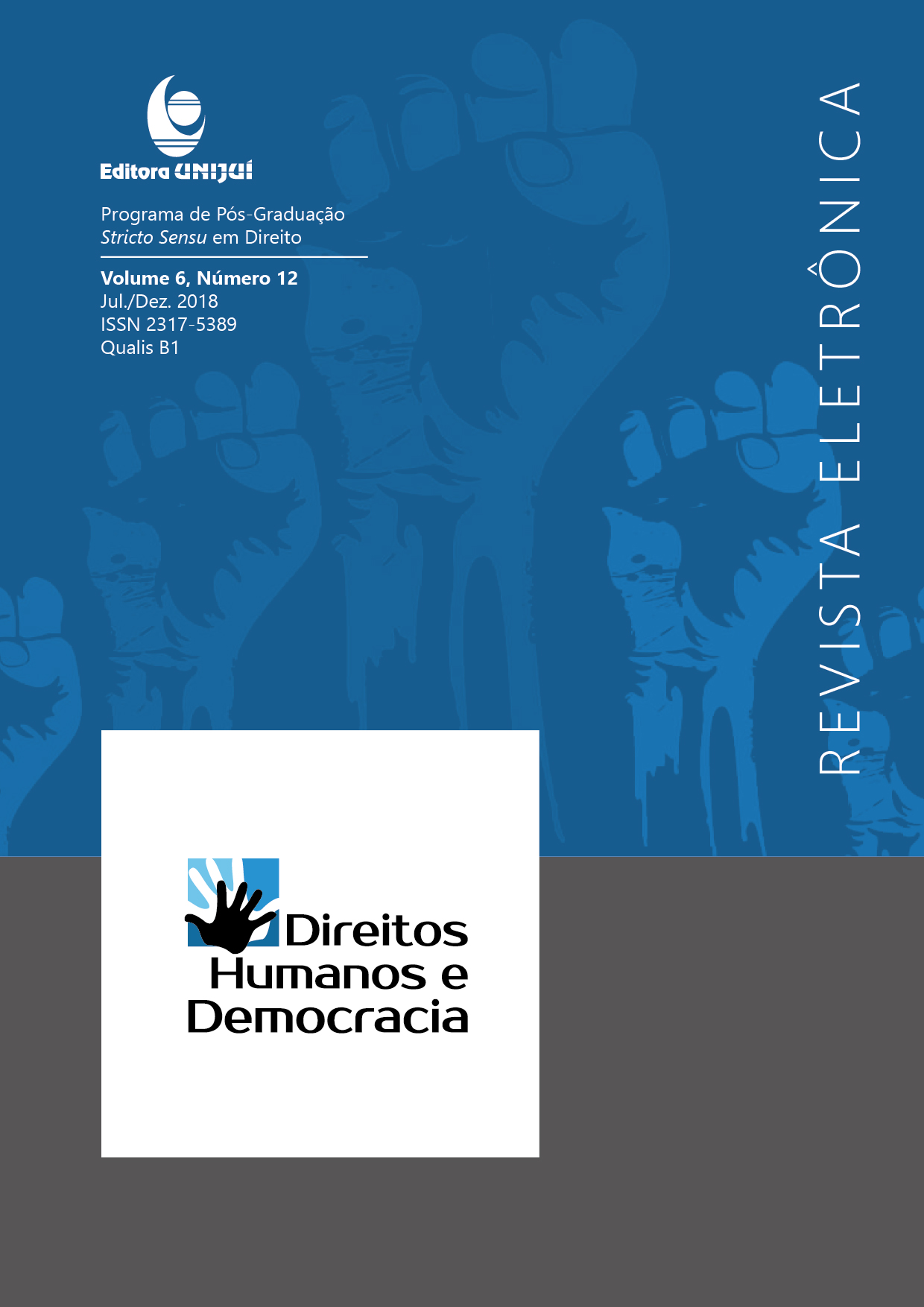DIREITOS HUMANOS, NOVAS TECNOLOGIAS E RESILIÊNCIA DO DIREITO
DOI:
https://doi.org/10.21527/2317-5389.2018.12.229-247Resumo
O presente artigo tem como tema de estudo, a importância da ideia de Resiliência nas reflexões jurídicas para pensar os Direitos Humanos em face dos desafios trazidos pelas Novas Tecnologias Digitais em uma Sociedade Complexa. Para tanto, se buscou responder o problema de pesquisa que indaga: qual a contribuição que a ideia de resiliência pode dar para pensar os Direitos Humanos em face de uma sociedade complexa, fortemente marcada pelos desafios trazidos pelas Novas Tecnologias Digitais? Trata-se de um trabalho crítico reflexivo que tem como objetivo geral, demonstrar a necessidade que se tem no Direito de pensar novas possibilidades de observação que leve em consideração a importância da inovação no Direito para enfrentar a complexidade social, fortemente marcada pelo avanço das Novas Tecnologias Digitais. Para tanto, se utilizou a método sistêmico construtivista, através de pesquisa bibliográfica. Tem-se como resultado a possibilidade de observação de novas perspectivas a serem consideradas, a partir de um potencial ainda não explorado suficientemente, mas considerando as contribuições da Resiliência do Direito abre-se novas possibilidades para tanto.
Palavras-chave: Direitos Humanos, Novas Tecnologias, Resiliência do Direito.
Downloads
Publicado
Como Citar
Edição
Seção
Licença
Ao publicar na Revista Direitos Humanos e Democracia, os autores concordam com os seguintes termos:
Os trabalhos seguem a licença Creative Commons Atribuição 4.0 Internacional (CC BY 4.0), que permite:
Compartilhar — copiar e redistribuir o material em qualquer meio ou formato;
Adaptar — remixar, transformar e criar a partir do material para qualquer fim, inclusive comercial.
Essas permissões são irrevogáveis, desde que respeitados os seguintes termos:
Atribuição — os autores devem ser devidamente creditados, com link para a licença e indicação de eventuais alterações realizadas.
Sem restrições adicionais — não podem ser aplicadas condições legais ou tecnológicas que restrinjam o uso permitido pela licença.
Avisos:
A licença não se aplica a elementos em domínio público ou cobertos por exceções legais.
A licença não garante todos os direitos necessários para usos específicos (ex.: direitos de imagem, privacidade ou morais).
A revista não se responsabiliza pelas opiniões expressas nos artigos, que são de exclusiva responsabilidade dos autores. O Editor, com o apoio do Comitê Editorial, reserva-se o direito de sugerir ou solicitar modificações quando necessário.
Somente serão aceitos artigos científicos originais, com resultados de pesquisas de interesse que não tenham sido publicados nem submetidos simultaneamente a outro periódico com o mesmo objetivo.
A menção a marcas comerciais ou produtos específicos destina-se apenas à identificação, sem qualquer vínculo promocional por parte dos autores ou da revista.
Contrato de Licença: Os autores mantém os direitos autorais sobre seu artigo, e concedem a Revista Direitos Humanos e Democracia o direito de primeira publicação.













